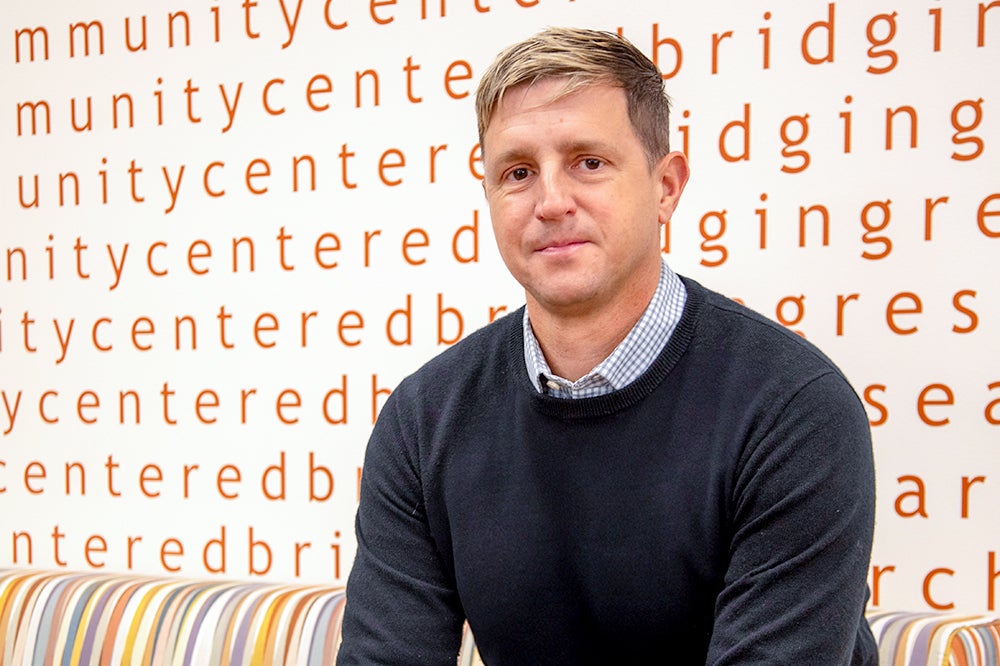
Professor Nathan Clemens
Dyslexia is a specific learning disability characterized by significant difficulties spelling and reading words. Current estimates of its prevalence indicate that dyslexia occurs in about 10% of the population, making it the most common learning disability in the U.S. These reading and spelling difficulties, if not addressed, can negatively affect school performance in the long term.
Proper assessment—recognizing the needs of the individual student—and early intervention are crucial to giving them the resources that can best help them in order to equalize classroom learning, something that is Dr. Nathan Clemens’ passion. A professor in the Department of Special Education, Clemens studies the development of word reading skills in early elementary school (and how difficulties with word reading skills arise), reading comprehension among older students and ways to improve educators’ use of assessment data to address the individual needs of their students.
Alongside his research and teaching, Clemens actively works with teachers, administrators and parents on ways to improve intervention and assessment for students with dyslexia and other forms of reading difficulty. Before he joined The University of Texas at Austin, he was a faculty member in the Department of Educational Psychology at Texas A&M University and received his Ph.D. in school psychology from Lehigh University.
He recently spoke with us about his unique background as well as his work to improve interventions for children and adolescents with dyslexia and other reading difficulties in order to optimize and guide classroom instruction and, ultimately, create learning environments that maximize the potential of all students.
Tell us a bit more about your background and the path that brought you to this point in your career. Your research explores intensive interventions for students with reading disabilities. How did you become interested in this particular research area?
I’ve always loved reading, but it wasn’t until my first year of graduate school that I became intensely curious in how reading skills develop and why some children have difficulties learning to read. Ever since then I have been interested in understanding why learning to read is so challenging for some children and identifying the best ways to assess and support students with reading difficulties.
Can you tell us more about your work with dyslexia and special education? How did you get involved, including personal experiences and motivations?
My degree is in school psychology, a field that is highly involved in the assessment of students with academic difficulties and the formal identification of learning disabilities, like dyslexia. The school psychology doctoral program at Lehigh University is integrated with their special education program, so in addition to training and experience in assessment, I was also able to gain experience in implementing interventions for students with reading difficulties.
I continued research in assessment and intervention for reading difficulties as a university faculty member and always worked closely with faculty in special education. When the opportunity arose to move to the Department of Special Education at UT Austin in 2016, it was just a natural step.
Over the course of the last few years, education has faced many challenges (the pandemic, CRT, book bans, curriculum questions). As a result, what have you seen developing when it comes to students and reading, students with disabilities and special education overall?
Despite the challenges you mentioned, the past few years have been marked by a dramatic reinvigoration of educators’ interest in research-based practices for teaching reading and providing intervention for students with reading difficulties. Teachers’ interest in the science of reading has led to a number of positive steps in improving how reading is taught and how intervention is provided. But in my view, the most significant challenge facing education in Texas (and across the country), is the critical shortage of teachers in both general and special education. Schools must be better resourced to attract, support and retain the best teachers, but most of all our society needs to change in how it views education. It must be a made priority.
What impact do you hope to have on communities and the lives of others through your research?
I conduct research that seeks to move practices in reading assessment and intervention forward. Although much has been learned about how reading skills are acquired, there are still numerous questions that remain unanswered about how to teach reading effectively and efficiently, and how to best intervene for students with significant reading difficulties. I like work that challenges the status quo and questions untested notions of “what works.”
You have a number of research projects going on. Could you tell us about some of the awards or grants you recently received and what you hope to achieve?
On one of these projects, my colleagues and I are aiming to develop a new intervention for students with dyslexia. We are conducting a series of experimental studies to test specific instructional components on students’ ability to read various types of words efficiently. These components may improve reading skills compared to previous interventions, but that remains to be seen. That is a purpose of research in education.

